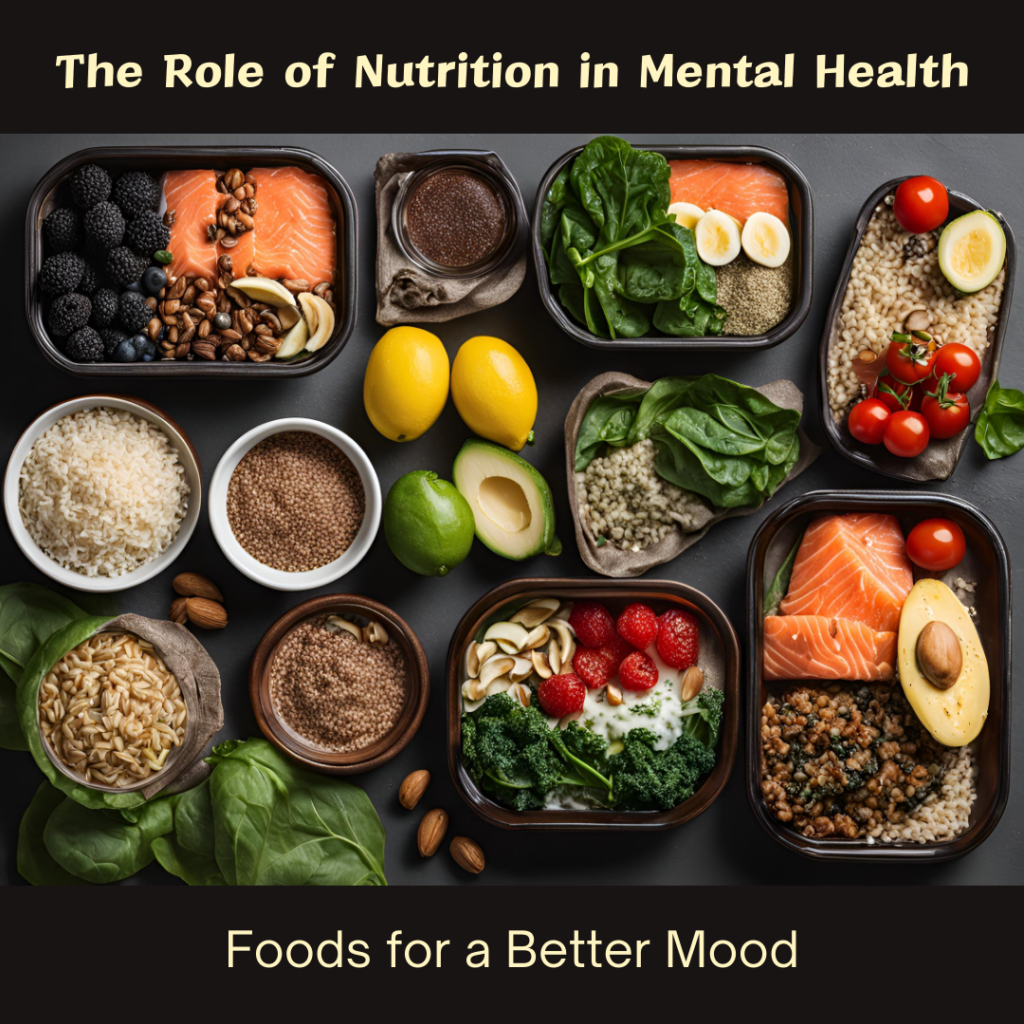Your Diet Shapes Your Mood and Mental Health
Everyone has a comfort food that impacts their mind. On the other hand, there are foods that leave them sluggish or irritable. Now no one can deny the connection between mental health and nutrition. There are several studies that show how deeply our diet impacts our mood, energy levels, and even long-term mental health. We are going to explore the fascinating relationship between our food and our minds. We’ll also try to find out all the foods for a better mood and what we should eat to enhance our emotional well-being.
The Science Behind Nutrition and Mental Health
Our brain and gut are connected through a complex communication network that links our digestive system to our brain. We know this network as the gut-brain axis (GBA). The gut microbiome, a complex community of bacteria, plays a pivotal role in creating neurotransmitters, such as serotonin, linked to feelings of happiness and positivity.
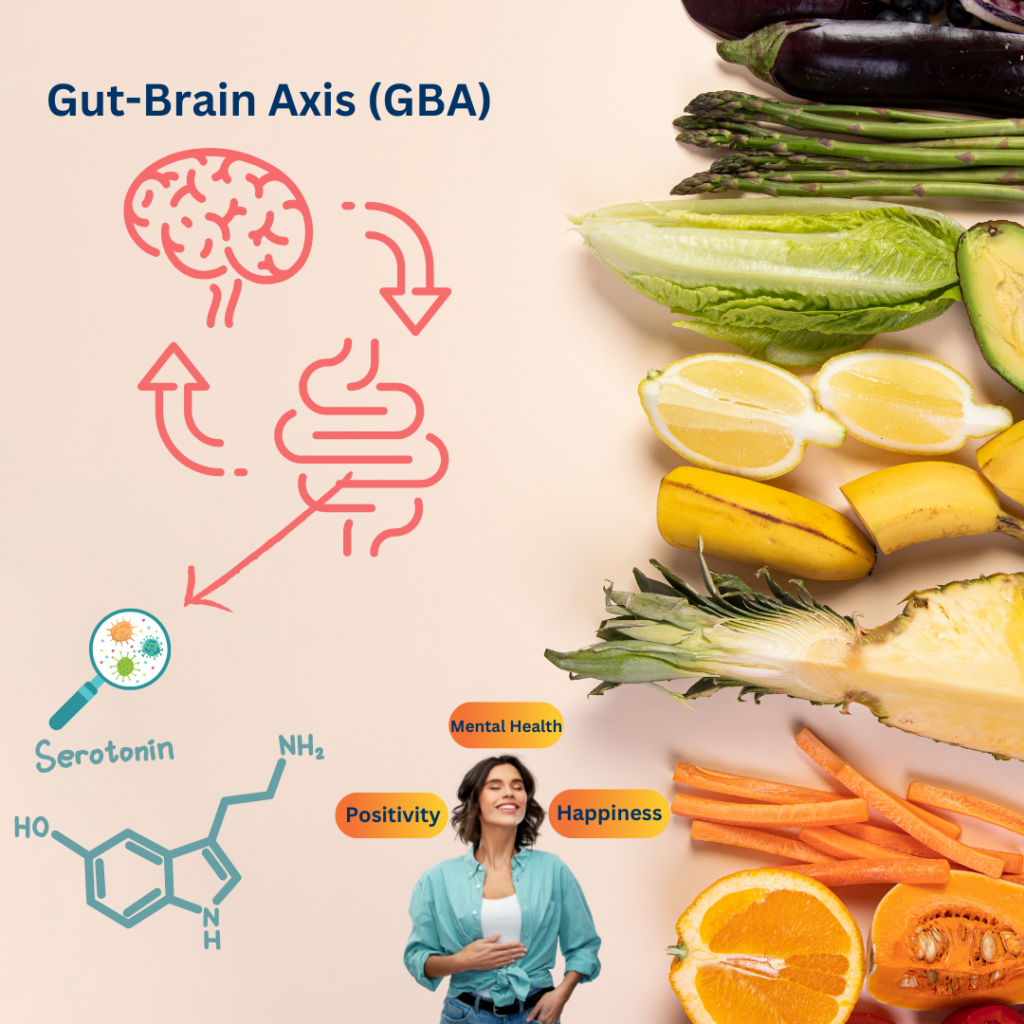
Our gut produces almost 90% of serotonin. Therefore, what we eat can directly affect our emotional state. A diet high in nutrient-dense foods strengthens gut health and neurotransmitter synthesis, promoting an improved mood and heightened mental clarity.
Essential Nutrients for Mental Well-Being: Foods for a Better Mood
Now as we know, certain nutrients are important for supporting mood, focus, and overall mental well-being, let’s explore some of the key nutrients that play a key role in maintaining a healthy mood and mind..
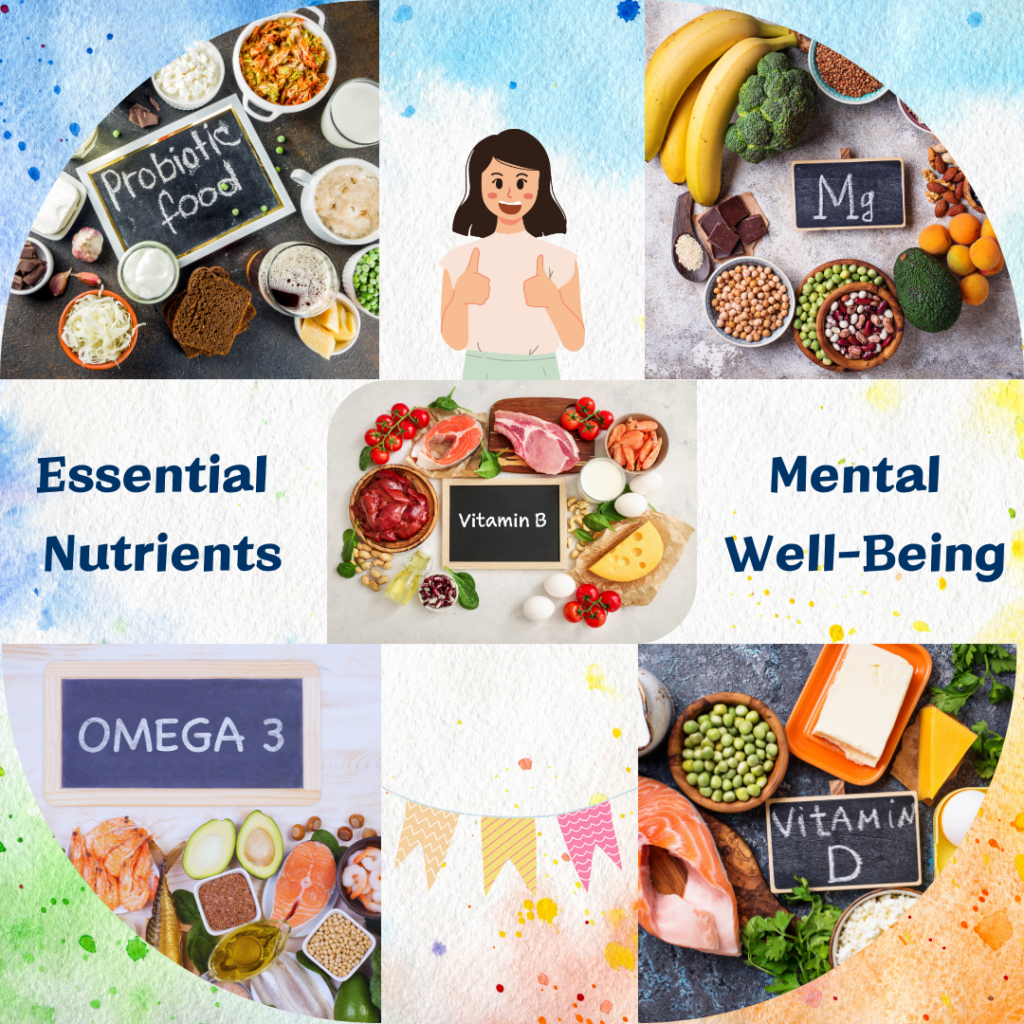
1. Omega-3 Fatty Acids
Omega-3s are vital for brain health and have been shown to reduce symptoms of depression and anxiety. These healthy fats are found in: Fatty fish like salmon, mackerel and sardines, walnuts, flaxseeds and chia seeds.
2. B Vitamins
B vitamins, particularly B6, B9 (folate), and B12, play a crucial role in energy production and the synthesis of neurotransmitters. A deficiency in these vitamins is often linked to mood disorders. Sources include: Leafy greens such as spinach and kale, eggs, whole grains like brown rice and quinoa.
3. Magnesium
Known as nature’s relaxant, magnesium helps calm the nervous system and improve sleep quality. You can find magnesium in: Nuts and seeds (almonds, sunflower seeds), bananas, dark chocolate (opt for 70% cocoa or higher).
4. Vitamin D
Often called the “sunshine vitamin,” vitamin D is essential for brain health. Studies suggest that low levels of vitamin D are associated with depression. Boost your levels by consuming: Fatty fish like salmon and mackerel, fortified dairy products or plant-based alternatives, mushrooms
5. Probiotics
Probiotics support gut health, which in turn affects emotional balance. Foods rich in probiotics include: Yogurt with live cultures, kefir, fermented foods like kimchi, sauerkraut, and miso.
Foods to Avoid for a Better Mood
While some foods boost our mood, others can negatively impact mental health.
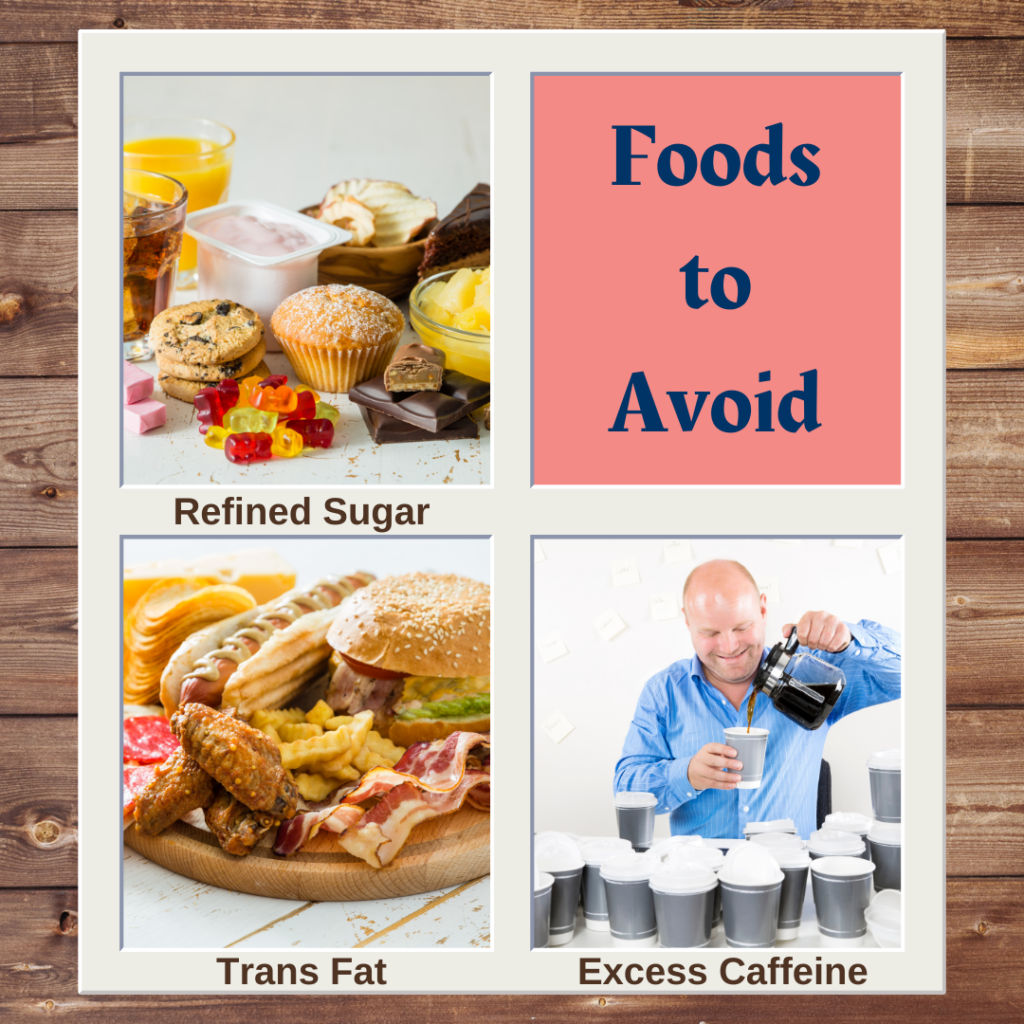
To maintain emotional stability, limit:
Refined sugars: These cause blood sugar spikes and crashes, which can lead to mood swings.
Trans fats: Found in fried and processed foods, trans fats are linked to inflammation and a higher risk of depression.
Excess caffeine: While moderate amounts can improve focus, too much caffeine may cause anxiety and disrupt sleep.
Meal Ideas for a Happier Mind
Incorporating mood-boosting foods doesn’t have to be complicated. Here are some simple meal ideas to get you started:
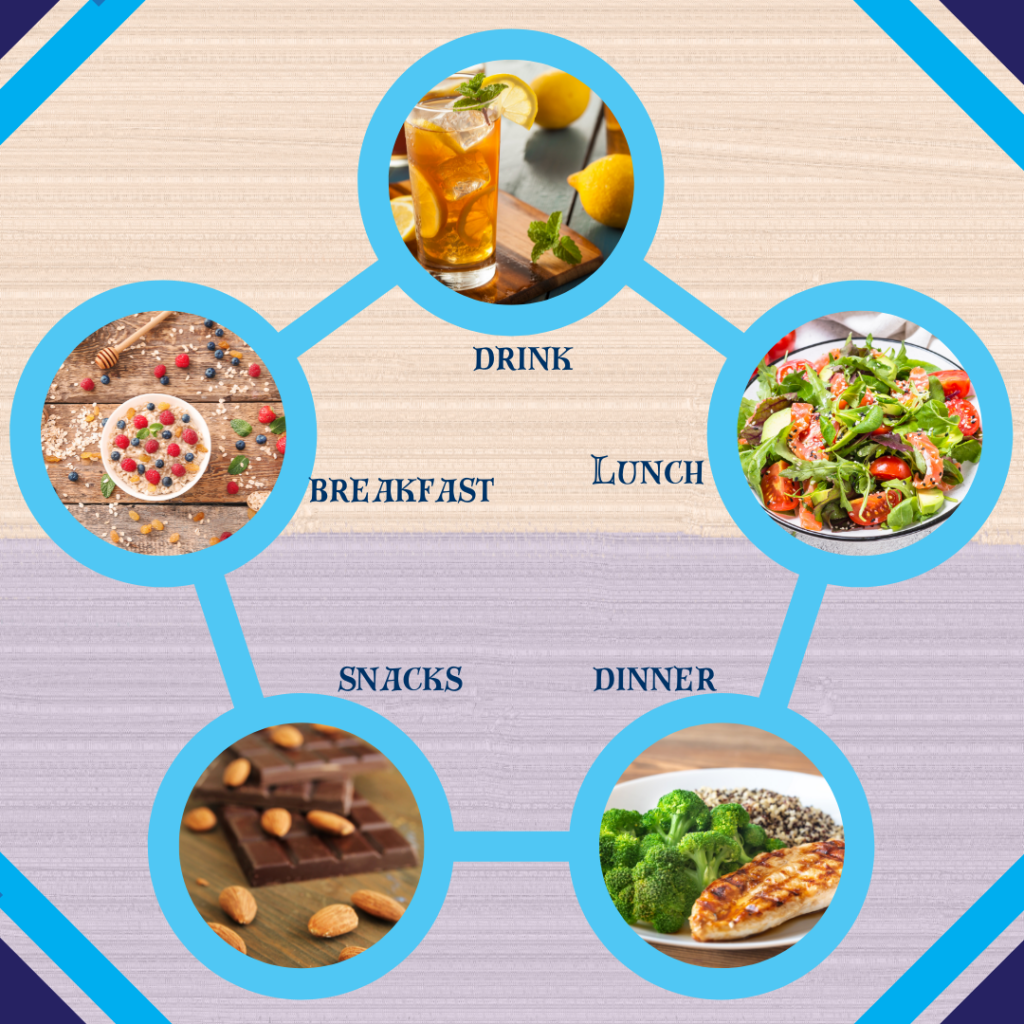
Breakfast: Oatmeal topped with fresh berries, a drizzle of honey, and a sprinkle of walnuts.
Lunch: Grilled salmon on a bed of mixed greens with avocado, cherry tomatoes, and olive oil dressing.
Snack: A handful of almonds paired with a piece of dark chocolate.
Dinner: Stir-fried tofu or chicken with quinoa and steamed broccoli.
Drinks: Herbal teas like chamomile or green tea, and infused water with slices of cucumber or lemon.
The Power of a Balanced Diet
A balanced diet is about more than just counting nutrients—it’s really about consistency! Eating regular, healthy meals keeps your blood sugar stable and gives you a steady boost of energy for both your brain and body.

And don’t forget about hydration! Even a little dehydration can make you feel tired and grumpy, so make sure to drink plenty of water.
Conclusion: Nourish Your Mind and Body
The link between nutrition and mental health is clear: what you eat directly impacts how you feel. To improve your mental health, try adding healthy foods to your diet and cutting back on foods that can disrupt your mood. Start with small changes like snacking on nuts, drinking water instead of sugary drinks, or cooking with fatty fish. These easy steps can help you feel happier and healthier.
Looking to learn more about healthy living? Read our next article, The Ultimate Guide to Popular Diets: Keto, Vegan, and Paleo Explained, to explore the benefits and challenges of these popular eating styles. Click here to continue reading.

